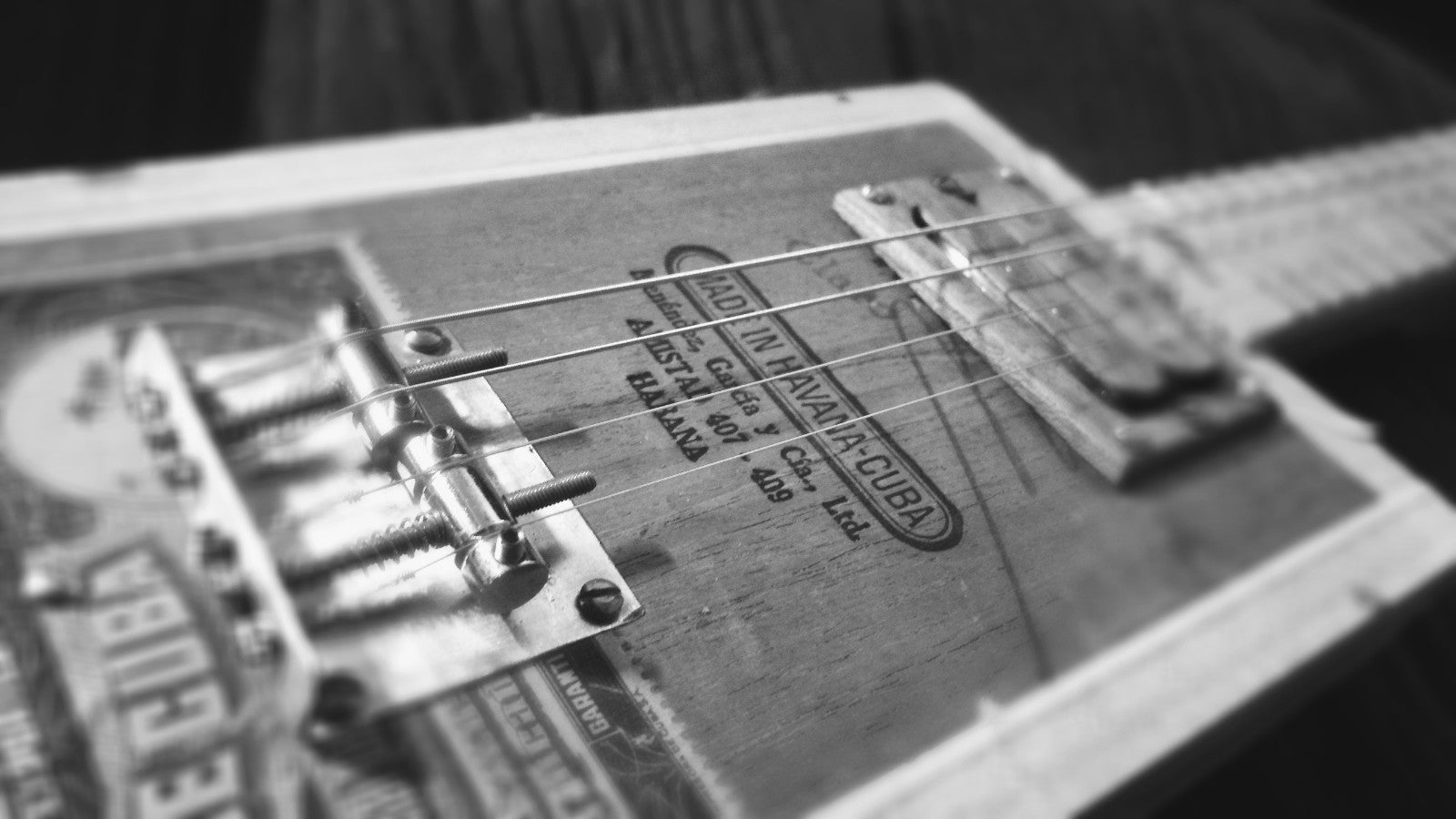History of the Cigar Box Guitar
The cigar box guitar is not just a simple, makeshift instrument: it is a symbol of resourcefulness and musical creativity , closely linked to the blues and American popular culture.
19th century: the origins
Around 1840–1860 , wooden cigar boxes became common in the United States.
In rural and poor areas, many cannot afford to buy instruments.
Rudimentary guitars appear, made from cigar boxes, broom handles and wire .
The diddley bow , a monochord of African inspiration, is the direct ancestor of the cigar box guitar.
Early 20th Century: The Blues School
Many blues musicians cut their teeth on these homemade instruments.
They perfect slide playing, ideal for 1, 2 or 3 string guitars.
Some notable names:
-
-
Blind Willie Johnson (1897–1945), pioneer of gospel blues, is said to have learned on a diddley bow.
-
Lightnin' Hopkins (1912–1982), Texas bluesman, started out as a child on a cigar box guitar.
-
Big Bill Broonzy (1893–1958) says his first guitar was a cigar box.
-
1930s–1950s: The Transition
After the Great Depression , inexpensive guitars (Stella, Harmony, Kay) became available.
The cigar box guitar remains present in poor households, but is declining.
Many bluesmen nevertheless retain this memory of a first "homemade" instrument.
Decline and Oblivion (1950–1980)
With the rise of electric guitars, cigar box guitars were considered mere toys.
They survive mainly in the memory of the old Delta blues musicians.
Modern Renaissance (1990 to present)
From the 1990s onwards, the cigar box guitar was reborn thanks to the DIY (Do It Yourself) movement and the return of roots blues.
Seasick Steve (born 1951), an American musician who became a star in Europe, popularized playing the cigar box guitar in his concerts.
Jack White (The White Stripes) uses a homemade cigar box-inspired guitar in the documentary It Might Get Loud (2008).
Justin Johnson , a modern virtuoso, is today one of the world's greatest ambassadors of the cigar box guitar.
Samantha Fish , a blues-rock guitarist and singer, regularly incorporates the cigar box guitar into her concerts, bringing a unique energy and proving that this instrument has no gender boundaries.
Heritage and symbol
The cigar box guitar embodies:
Popular ingenuity : making music with almost nothing.
The authenticity of the blues : a raw, expressive sound, steeped in history.
The craft revival : today, thousands of luthiers and musicians make and play these instruments all over the world.
The cigar box guitar is not just an instrument: it is a part of blues history and American popular culture , still alive and reinvented in the 21st century.

